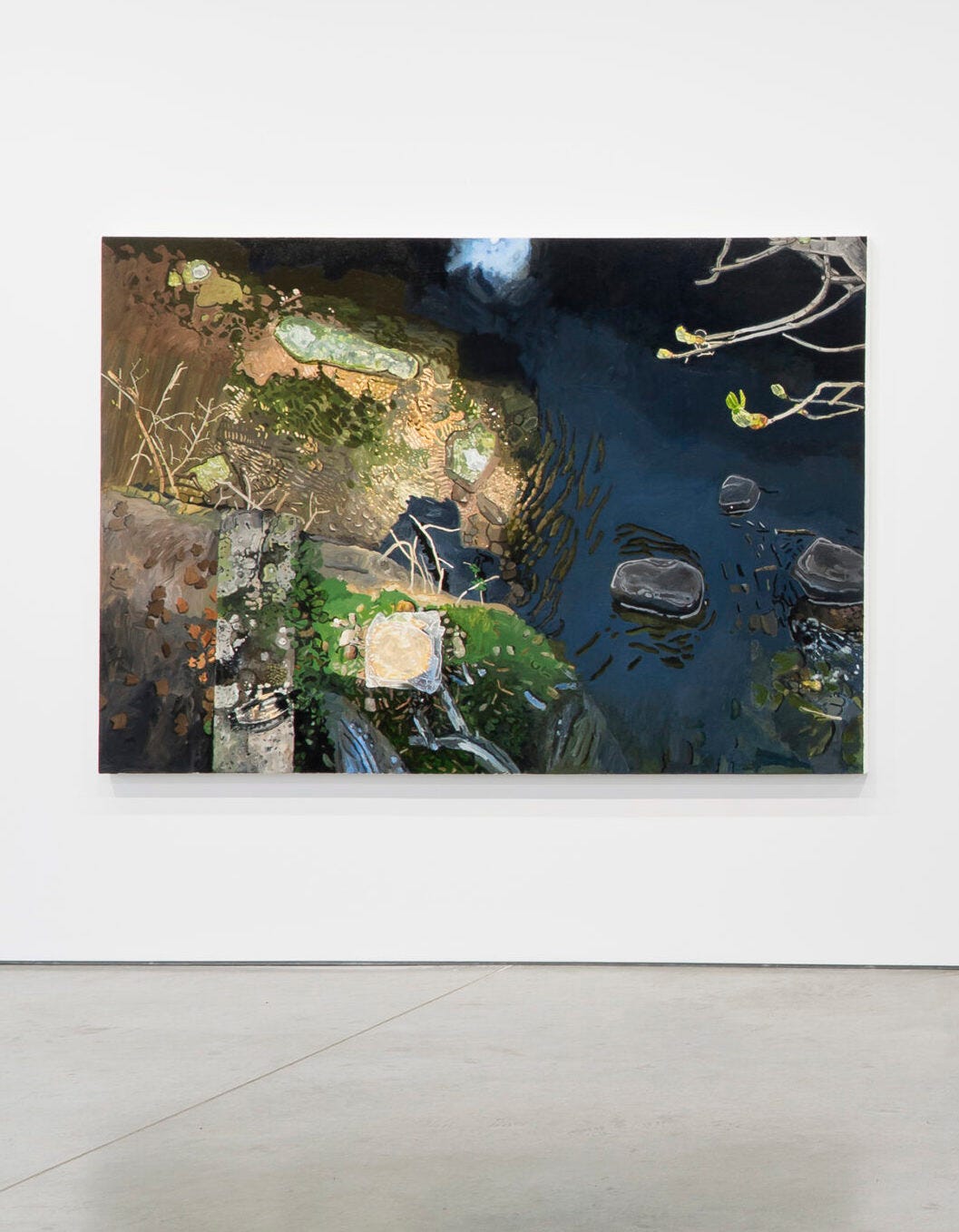Sometimes when I go see work I make a note in my notes app, there’s something nice about a first impression:
Margaux Williamson paints like Guston. Outlines in black from a shivering hand. But her paintings, unlike Guston’s, are tranquil—if a little eerie. They are scenes where someone was just sitting, and though that someone left a minute ago, it’s been an interminable minute. The scenes Williamson paints are cast in amber, left forever in their moment of loneliness. It’s reassuring, like how me and my mom are looking at the same moon, if not altogether tragic.
I walked downstairs to the bunker and a recording of crickets played. I would trade cicadas for crickets any day.
Rereading this note, I see how homesick I was. Homesick for cold nights on the beach with cigarette butts pressed into the dusty sand and a greasy bag of fast food getting cold and a half drunk beer in hand. I was missing biking across the bridge late at night when the traffic is all gone, after the restaurant counters were wiped and we locked the doors. I was missing tomato salad at my parents’ house in their overgrown backyard, with our big yellow dog under the table. I was missing the mountains, blue and hazy through the hot air. I was missing driving down parched roads through sweet cedars in the old convertible with towels in my lap on the way to a secluded swim.
While I was in Bradley Ertaskiran looking at the Williamson painting, I could feel the homesickness like the raw, bitten inside of a cheek.
…
I read an essay about Williamson by David Balzer (in this catalogue). He talks about cliché relating to Williamson’s hand paintings in her I Could See Everything series. Her cartoonish, glovelike, Guston-y hands are repetitions of repetitions. That is, she paints hands after the cliché of painted hands, Balzer calls this a shove against a shove.
Earlier in the essay, Balzer writes “painting is too old and widely practised not to drift toward cliché.” How do you get around cliché, then? Balzer makes reference to D.H. Lawrence, who thought that when you really get to know something, you know all sides of it. You know what its essence is and what its insides are like.
What I’ve described is so clichéd: feeling homesick for summers and convertibles and the beach. But maybe these clichés, based on cliché, butt up against cliché. And in all this sentimentality I’ve circumvented irony completely.
I really was homesick after all.

Until next time.
Sophia





